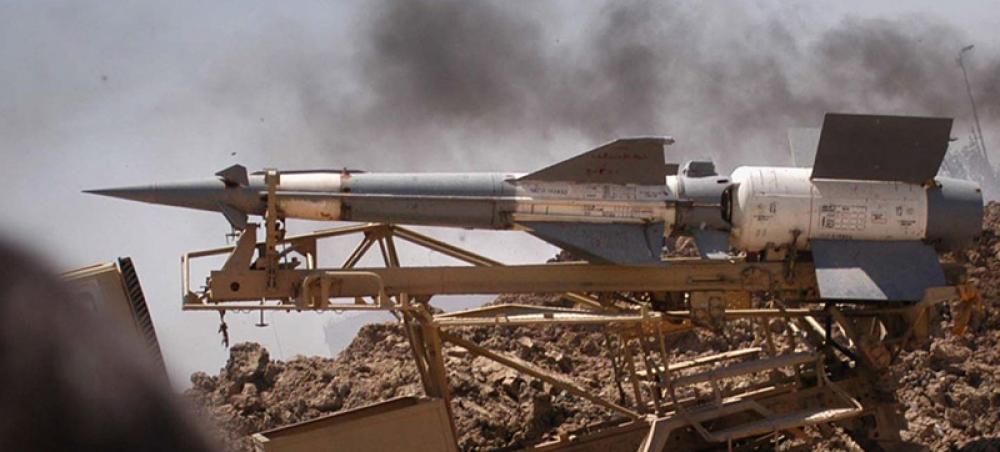Just Earth News | @justearthnews | 22 Nov 2022, 03:20 am Print
 North Korea
North Korea Image: UNICEF/Patrick Andrade
New York: Updating the Security Council on Monday, the head of UN Political and Peacebuilding Affairs (DPPA) recalled that last Friday, the Democratic People’s Republic of Korea (DPRK) test-fired what it described as a new-type of intercontinental ballistic missile.
Citing the DPRK’s official news agency and various government sources, Rosemary DiCarlo told ambassadors that at around 10:15 am local time, the so-called Hwasong-17 missile flew a distance of 1,000 km at an altitude of approximately 6,100 km.
“It is reportedly the first successful test of the DPRK’s largest and most powerful missile, capable of reaching all of North America”, she stated.
Scores of launches
Tweet URL
The launch was “the latest in a series of alarming activities” related to North Korea’s nuclear weapon and ballistic missile programmes, Ms. DiCarlo pointed out.
She noted that it has conducted over 60 launches using ballistic missile technology this year, two of which involved ballistic missiles characterised by the DPRK as intermediate-range, and three as intercontinental-range.
Other launches included shorter-range missiles using ballistic technology and other systems, which the DPRK has stated are to be utilized as so-called “tactical” nuclear weapons.
This year it has also carried out launches using ballistic missile technology to test so-called hypersonic weapons and satellite systems, continued the senior UN official.
Moreover, the DPRK did not issue airspace or maritime safety notifications for any of these launches.
“Unannounced launches represent a serious risk to international civil aviation and maritime traffic”, she underscored.
Desist and comply
The Secretary-General had strongly condemned the DPRK’s latest intercontinental ballistic missile launch – the second one this month, Ms. DiCarlo said.
North Korea’s continued pursuit of its nuclear weapons programme and ballistic missiles launches “blatantly violate” relevant Security Council resolutions and have significantly escalated tensions.
She reiterated calls on the DPRK to “desist from taking further provocative actions and to fully comply with its international obligations under relevant Security Council resolutions”.
Nuclear concerns
The DPRK also appears to be actively pursuing its nuclear programme, the UN political chief warned.
She quoted comments made last Wednesday by the head of the UN nuclear watchdog, IAEA, who said that the Punggye-ri Nuclear Test Site “remains prepared to support a nuclear test”.
Furthermore, IAEA has continued to observe activity at the site and construction activities at the Yongbyon nuclear facilities, as well as indications that the 5-megawatt nuclear reactor was operating.
Peninsula divided
“This is the tenth time the Council has met to discuss the DPRK in 2022, yet the situation on the Korean Peninsula continues to head in the wrong direction”, asserted the DPPA chief.
Repeated missile launches, confrontational rhetoric, and military exercises contribute to “a negative action-reaction cycle” as tensions continue to increase, with “no off-ramps in sight”, she added.
And the COVID-19 pandemic is complicating diplomacy by impeding official and unofficial contacts with the DPRK.
“It is critical to de-escalate and reduce tensions”, said Ms. DiCarlo, flagging the need to enhance communication, “particularly military to military, to lower the risk of miscalculation”.
She echoed the UN chief in urging the DPRK to “take immediate steps to resume dialogue” for sustainable peace and complete denuclearization of the Korean Peninsula, and conveyed these serious concerns to the DPRK’s UN Ambassador when they met on 9 November.
Noting that Security Council unity is “critical”, and a diplomatic solution “the only way forward”, she encouraged the ambassadors to “urge the DPRK to refrain from carrying out further launches using ballistic missile technology or a seventh nuclear test”.
Humanitarian concerns
In closing, Ms. DiCarlo flagged concerns surrounding the country’s humanitarian situation.
“The United Nations is ready to assist the DPRK in addressing medical and humanitarian needs, including those related to the COVID-19 pandemic”, she said.
“To allow for a timely and effective response, we reiterate our call for the unimpeded entry of international staff and humanitarian supplies”.
- United Kingdom launches eVisa for Indian visitors starting today — Here’s what travellers need to know
- Abandoned at birth, Punch the macaque finds global love as crowds flock to Tokyo zoo
- YouTube Premium Lite just got a massive boost — Know all details
- Trump claims he stopped 35 million deaths by stopping India-Pakistan war
- Entrepreneur decides to shut down 16-year old eatery in London, cites harassment and Pakistani attacks





-1763561110.jpg)
